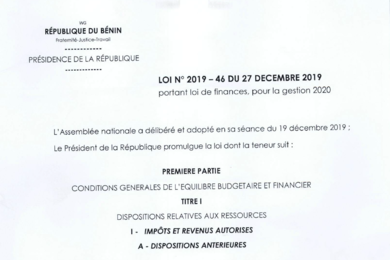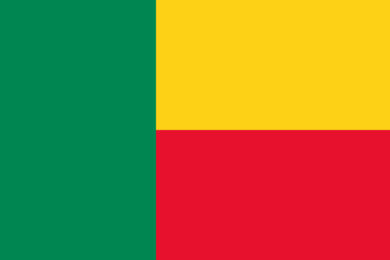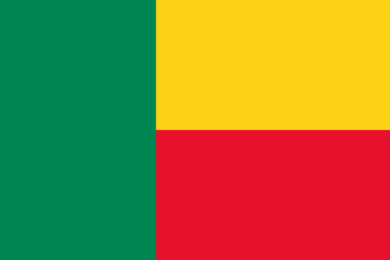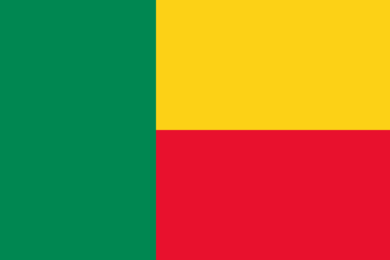News

Evolution of the sharing of the mining rent in Senegal
Senegal is a country rich in natural resources: the extractive sector represents 38% of its exports in 2020. The country produces mainly gold and phosphate. However, Senegal's former mining act of 2003 did not allow for a sufficient share of the mining rent to be captured. Indeed, the context at the time was marked by low commodity prices. The aim of the old mining act was to attract mining investments by offering numerous tax advantages. But when a new commodity price super-cycle took place in the mid-2000s, Senegal was forced to take measures to increase its mining revenues, which led to the adoption of a new mining act in 2016.
The evolution of Senegal's mining policy reflects the difficulties faced by resource-rich developing countries. Many are torn between the desire to attract investors by granting tax incentives and the disappointment that once projects are launched, revenues do not follow, especially when world prices rise but the tax system is not progressive. In order to avoid having to renegotiate mining contracts, it is important to define an adjusted mining tax regime, which can, among other things, adapt to the evolution of international prices.

Update 2020: Benin, Burkina Faso and Cote d’Ivoire
Updated tax data for 2020 are now available for Benin, Burkina Faso and Cote d’Ivoire.
In Benin, the minimum tax is increasing. The standard rate increases from 0.75% to 1% and the reduced rate granted to industrial activities increases from 0.5% to 0.75% (Act No. 46 of 2019). In Burkina Faso, the value added tax (VAT) rate is no longer a single rate of 18%. A reduced rate of 10% has been created for accommodation and catering services provided by approved tourist accommodation establishments (Act No. 31 of 2020). In Cote d'Ivoire, the minimum tax has been temporarily suspended for the year 2020. The explanatory memorandum explains that studies are underway to reform the minimum tax, as “this tax is considered inadequate by the private sector, insofar as it must be paid by companies even though they make little or no profit” (Act No. 1080 of 2019).

Beninese minimum tax: rate increase
In Benin, the tax annex to the Finance Act, 2020 (Act No. 46 of 2019) increases the minimum tax. Until 2015, this tax was 0.75% of cashable income and could not in any case be less than 200,000 CFA francs. In 2016, a reduced rate of 0.5% was introduced for legal entities with industrial activities, except for mining companies.
In 2020, these amounts were increased. The rate is now 1% for mining companies and legal entities not engaged in industrial activity. It is reduced to 0.75% for legal entities engaged in industrial activity. In all cases, it may not be less than 250,000 CFA francs. A special regime also exists for service stations, which cannot be less than 0.60 francs per liter sold. These new measures are included in the implementing rules of the Finance Act, 2020 (Circular No. 0002/MEF/DC/SGM/DGI/DLC/SLRI of January 3, 2020).

Beninese tax on specific products: the case of mining products
In 2017, Benin had introduced three separate taxes on gold bullions (5%), precious stones (10%) and marble (5%). The tax annex to the Finance Act, 2020 (Act No. 46 of 2019) repealed these different taxes and combined them into one, designated as the tax on specific products, which lists all excise duties. This tax concerns “all imports or transfers of specific products carried out for valuable consideration or free of charge”. The tax base is defined, on importation, as the “customs value, plus duties and taxes collected on entry” excluding VAT and, on importation, as the “ex-factory selling price” excluding VAT. A single rate of 10% now applies to mining products: gold bullions, precious stones and marble. 80% of the revenue is allocated to the Treasury and 20% to the promotion of sport. This tax on specific products is now located in sections 274 and following of the new general tax code (Act No. 15 of 2021).

Beninese corporate tax: extension of loss carry forward
In Benin, the tax annex to the Finance Act, 2020 has made several important changes to the calculation of the corporate tax base (Act No. 33 of 2020). Firstly, head office expenses, technical, accounting and financial assistance expenses, study expenses and other similar expenses, which were deductible up to a limit of 20% of general expenses, are now deductible up to a limit of 5% of taxable profit. In addition, the practice of deferred depreciation is abolished, which means that deferred depreciation will now only be considered as ordinary losses. In return, however, the permitted loss carry-forward period has been extended from 3 to 5 years. These new measures are detailed in the application modalities of the Finance Act, 2021 (Circular n°024/MEF/CAB/SGM/DGI/DLC/SLRI of January 8, 2021).